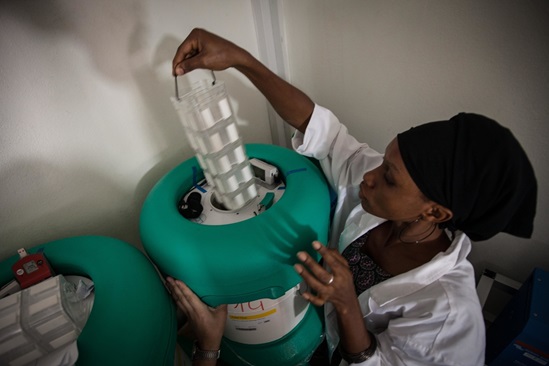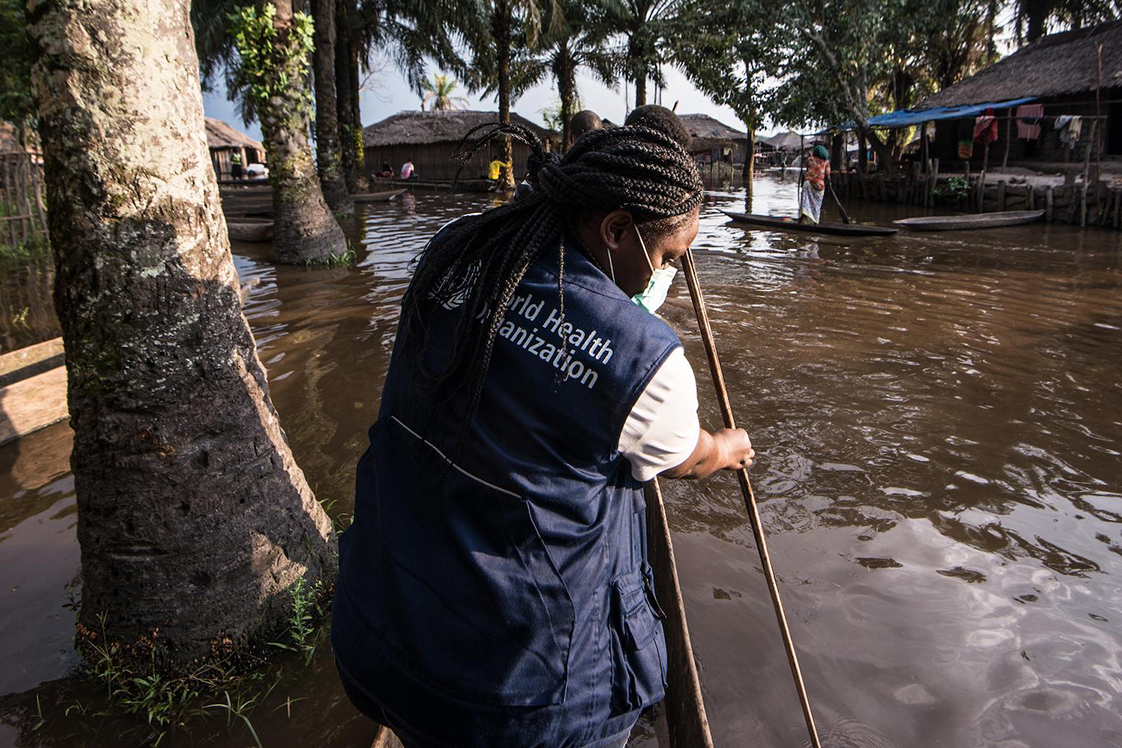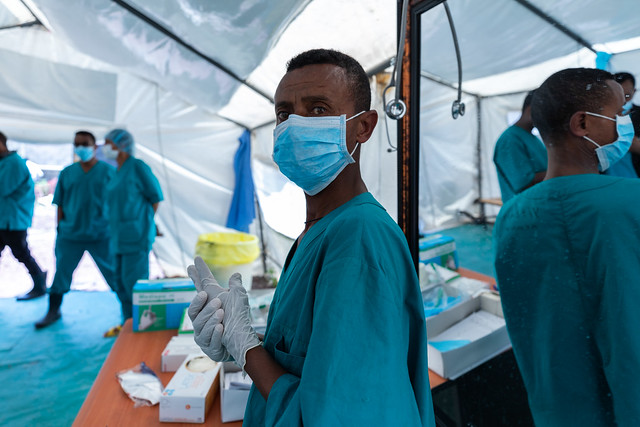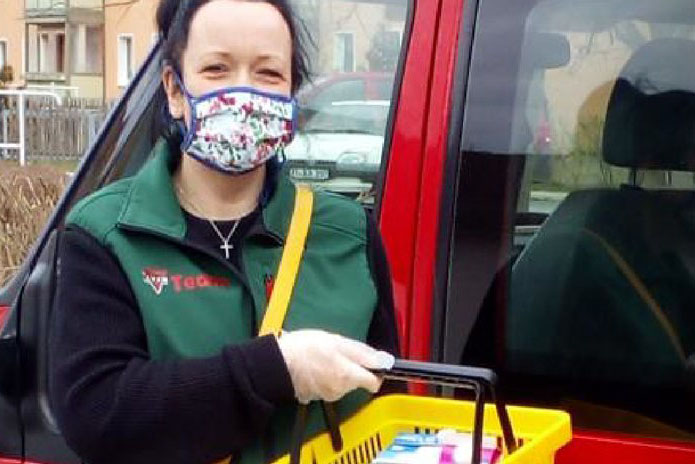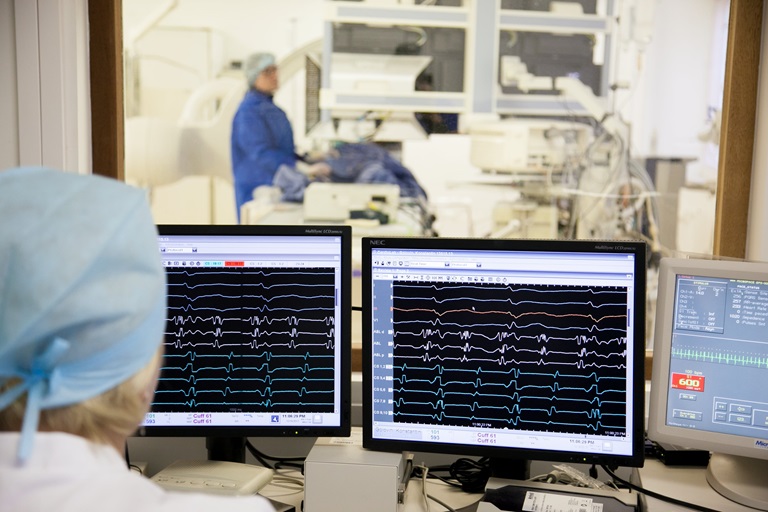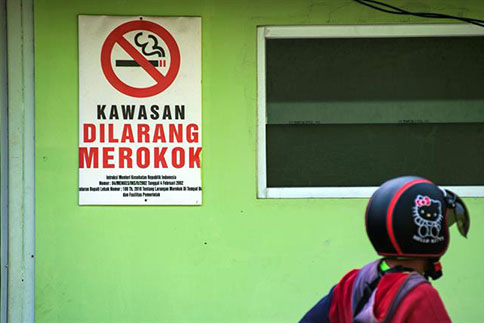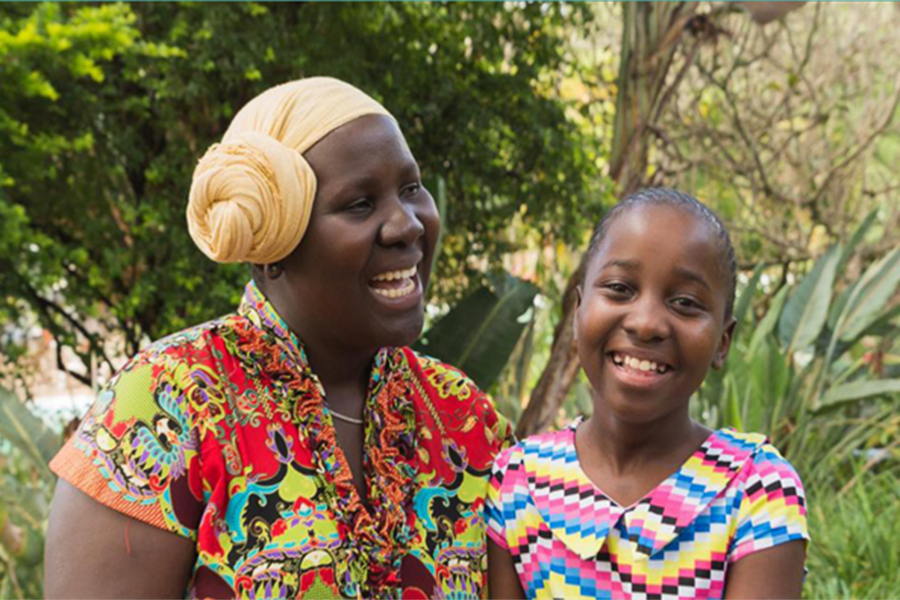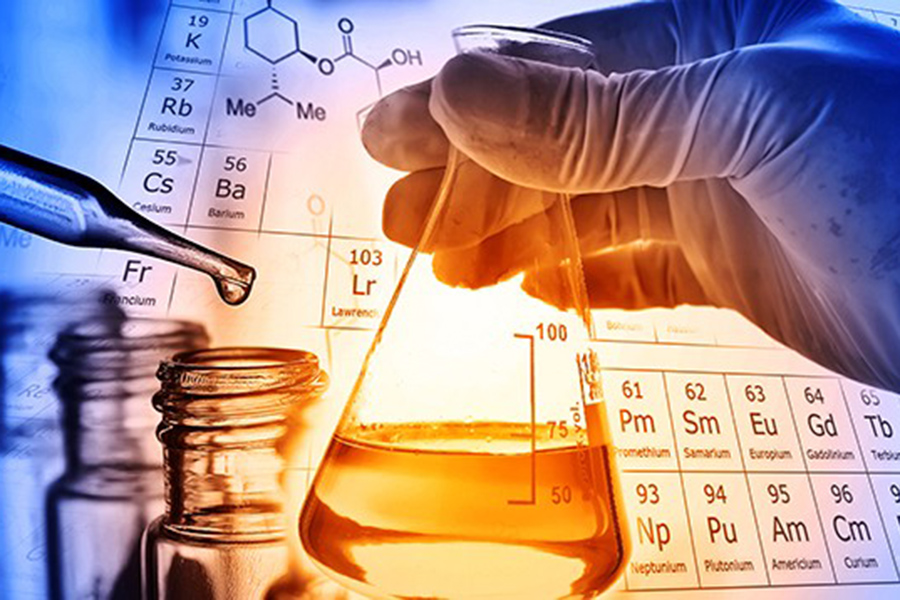The effort to establish the stockpile was led by the International Coordinating Group (ICG) on Vaccine Provision, which includes the World Health Organization (WHO), UNICEF, the International Federation of Red Cross and Red Crescent Societies (IFRC), and Médecins Sans Frontières (MSF), with financial support from Gavi, the Vaccine Alliance. The stockpile will allow countries, with the support of humanitarian organizations, to contain future Ebola epidemics by ensuring timely access to vaccines for populations at risk during outbreaks. UNICEF manages the stockpile on behalf of the ICG.
WHO
A year ago, a little-known virus emerged, and in a matter of weeks the world would be jolted by an unprecedented pandemic. COVID-19 has upturned every aspect of life, and the struggle is still on to bring the virus under control. In the African region, WHO has worked with governments to tackle the pandemic, which turned 2020 into an extremely challenging year. Even so, the region reached remarkable milestones: two Ebola outbreaks have been halted, Africa is free of wild polio and more is being done to safeguard health systems. We feature some of the key achievements of 2020.
2020 was an unprecedented year for WHO/Europe. COVID-19 dominated WHO’s work around the world, including the European Region, with support and cooperation taking place across countries. Dr. Hans Henri P. Kluge was officially appointed WHO Regional Director for Europe, and at the 70th session of the WHO Regional Committee for Europe, the European Programme of Work 2020-2025 was adopted by consensus by Member States. We look back on some of the key moments over the past 12 months.
Around 1.8 billion people are at heightened risk of COVID-19 and other diseases because they use or work in health care facilities without basic water services, warn WHO and UNICEF. The situation is worst of all in the world’s 47 Least Developed Countries (LDCs): 1 in 2 health care facilities does not have basic drinking water, 1 in 4 health care facilities has no hand hygiene facilities at points of care; and 3 in 5 lack basic sanitation services.
A new ground-breaking global youth mobilization was launched to invest in and scale up youth-led solutions and engagements in response to COVID-19. The initiative was launched by an alliance of the world’s largest youth movements and organizations, together with the World Health Organization (WHO) and the United Nations Foundation. Funding for community programmes, engaging youth in solutions to address COVID-19, and convening Global Youth Summit are key features of the new initiative.
During the 2000 to 2019 period, noncommunicable diseases made up 7 of the world’s top 10 causes of death, according to WHO’s 2019 Global Health Estimates.
WHO launched a year-long global campaign for World No Tobacco Day 2021 - Commit to Quit - to help 100 million people quit tobacco.
The global HIV epidemic is not over and may be accelerating during the COVID-19, with a devastating impact on communities and countries.
In observance of the World Day of Remembrance for Road Traffic Victims, WHO highlights the need to remember those who died; support those who survived; and take action to save lives on the world’s roads.
WHO‘s Global Strategy to Accelerate the Elimination of Cervical Cancer outlines three key steps: vaccination, screening and treatment. Successful implementation could reduce more than 40% of new cases of the disease and 5 million related deaths by 2050. This historic milestone marks the first time that 194 countries commit to eliminating cancer - following adoption of a resolution at this year’s World Health Assembly.
World Antimicrobial Awareness Week (WAAW) aims to increase awareness of global antimicrobial resistance and to encourage best practices among the general public, health workers and policy makers to avoid the further emergence and spread of drug-resistant infections. FAO, WHO and partners, expanded the scope of the Observance, changing its focus from "antibiotics" to the more encompassing and inclusive term "antimicrobials". The week will be celebrated every year on 18-24 November starting from 2020. This year’s theme for the human health sector is “United to preserve antimicrobials".
Kim Sledge, Grammy Award winning international artist and member of the legendary group Sister Sledge, and global social impact enterprise the World We Want, have joined forces with the World Health Organization and the WHO Foundation to promote global solidarity and health for all through the “W
WHO invites independent film-makers, production companies, NGOs, communities, students, and film schools to submit their original short films to the 2nd Health for All Film Festival.
Scientific discoveries and advances must be shared, according to the Declaration in favour of “open science”, science that is unhindered by barriers and frontiers, which was made jointly on 27 October by UNESCO, WHO and OHCHR. The COVID-19 epidemic demonstrates the urgent need to strengthen scientific cooperation and to guarantee the fundamental right of universal access to scientific progress and its applications. The open science movement aims to make science more accessible, more transparent and ultimately more effective.

